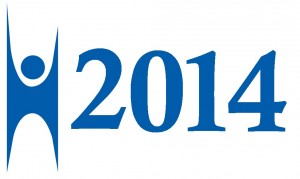Humanist Hopes for 2014

What do humanists hope for in the coming new year? More elected officials representing nontheist equality? Greater protection of atheist rights worldwide? Matthew Bulger* shares his hopes and we call on you to share your thoughts!
2014 is right around the corner, and while many people are busy coming up with their New Year’s resolution I’ve been thinking about some of the things I’d like to see happen in the upcoming year.
As a political junkie, I’m eagerly awaiting the 2014 congressional elections to see who wins, who loses, and how the political landscape of Congress is affected. One of the things that I’m personally hoping for is the election of a humanist candidate to Congress, and it looks like two openly humanist candidates actually have a pretty good chance of winning. The first, Arizona State Representative Juan Mendez, made headlines earlier this year when instead of leading the legislature in the daily prayer he came out as a humanist and spoke about Dr. Carl Sagan; he was also a featured speaker at the American Humanist Association’s 73rd Annual Conference held this past June in San Diego. The other candidate, Oregon State Representative Carolyn Tomei, has legislated based on humanist values and identifies as a humanist. Both candidates are being supported by the Freethought Equality Fund, a political action committee (PAC) run by the American Humanist Association’s Center for Humanist Activism, which is dedicated to helping elect nonreligious candidates for public office.
Another hope I have for 2014 is an end to discrimination against nonreligious people. The International Humanist and Ethical Union, of which the American Humanist Association is a member organization, just released a report focusing specifically on the rights, legal status, and discrimination against humanists, atheists and the non-religious in every country in the world. The report found several disheartening things, including the fact that a person can be put to death for expressing atheism in 13 countries. The report also found that in 39 countries the law mandates a prison sentence for blasphemy, and that the non-religious are discriminated against, or outright persecuted, in most countries of the world. While atheism seems to be becoming more mainstream, nonreligious people still experience discrimination and outright oppression in countries around the world, which is something I hope will change in the very near future.
The last big hope I have for 2014 is that the American people will start to accept the validity of the theory of evolution. Shockingly a 2013 poll found that only 21% of Americans believe that human beings evolved without the involvement of God, and another poll found that over 46% of Americans believe in creationism. This shockingly high number is embarrassing because it shows that Americans approach the issue of humanity’s origin from a mostly unscientific and explicitly religious standpoint, and shows just how little we truly know about ourselves and where we came from.
2014 is sure to be an interesting year full of up’s and down’s, but it could truly be great year if humanists started to be represented in Congress, if people around the world were free to believe or not believe without the threat of jail or death, and if Americans finally came around on the evolution issue. I feel pretty confident that some of these hopes will be fulfilled in the very near future, and I’m excited to see what the new year will bring to the humanist movement.
What do you hope for in 2014? Let us know in the comments!
*The views and opinions expressed in this article are solely those of the author and do not necessarily represent those of the American Humanist Association or Humanist Network News.
